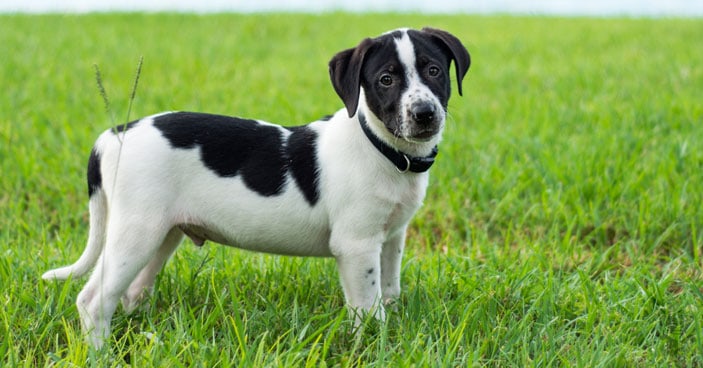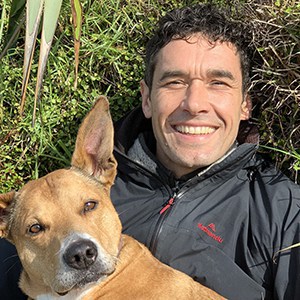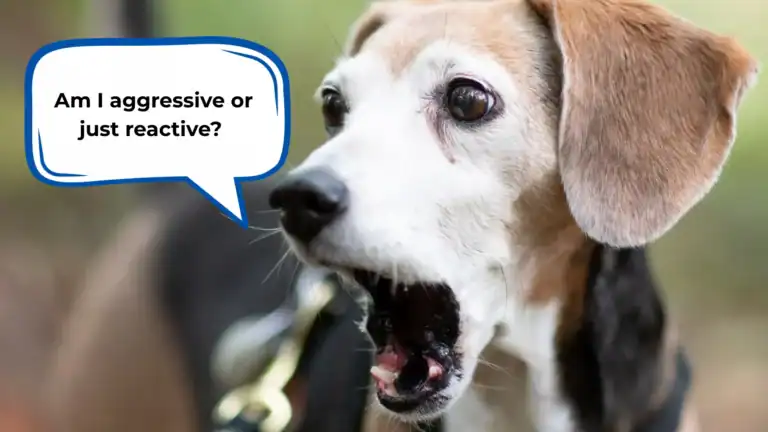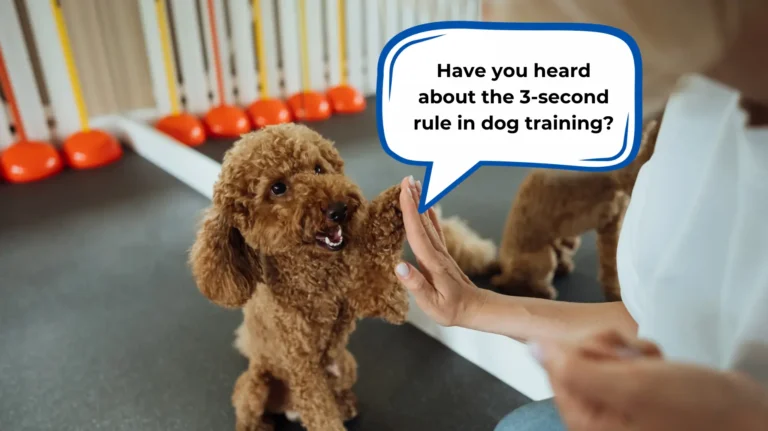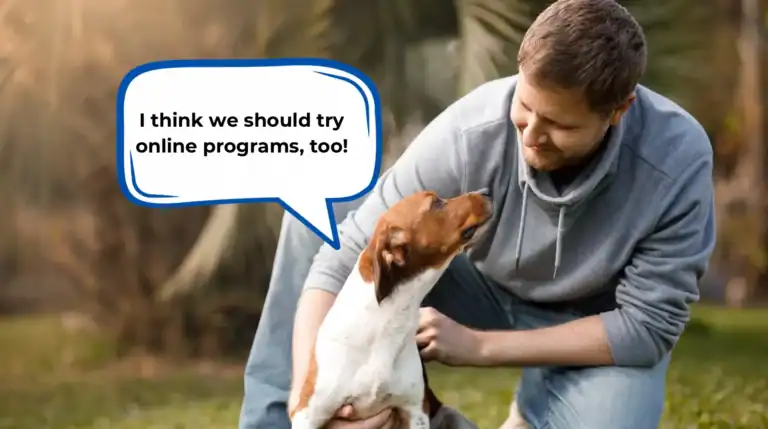When a puppy arrives in your life, it doesn’t come with a manual. Potty mistakes WILL happen. But the good news is you can get it under control quickly!
In the first few weeks, you will be navigating new things like feeding a puppy, or keeping up with their seemingly endless bouts of energy all by yourself.
You will also get your first run-on with a pee accident – one thing that reminds you of how vital potty training is and why you should start it ASAP.
As a puppy parent, I know each decision we make for our little furballs is filled with good intentions. I have learned that being new to puppy training pushes you to do things intuitively, crossing the idea of hiring a puppy coach and deciding you’ll do potty training all on your own.
Until one day, you will realize that no matter how hard you try, you can unknowingly and unintentionally make potty training mistakes that cause potty training setbacks.
And as a puppy parent that wants to make the journey less frustrating, making mistakes is the last thing you’d like.
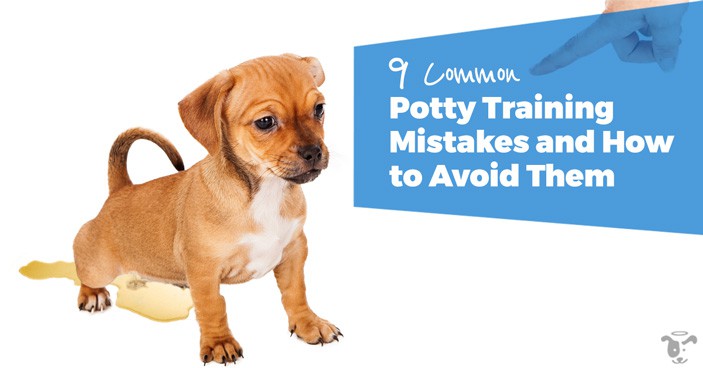
Key Takeaways:
- Falling into potty training loopholes is easy when you don’t have the right guidance.
- Even with good intentions, puppy owners can still make significant mistakes that cause issues in potty training.
- Puppy owners should develop trust and bond before starting potty training.
- Issues come up when you don’t start potty training with a clear, solid plan.
- Expecting puppies to know everything from the get go can lead to a lot of frustrations.
- Crate training might feel like a bad idea, but it’s actually a powerful potty training tool.
- Because puppy owners determine how their potty training journey will go, they need all the help they can get.
The Elements of Potty Training a Puppy Successfully
The road to potty training puppies is one laden with trial and error.
One moment, your dog thrives in your training style. The next time you check, their potty accident is again on the floor.
Then you begin to wonder, “Am I doing something wrong?”
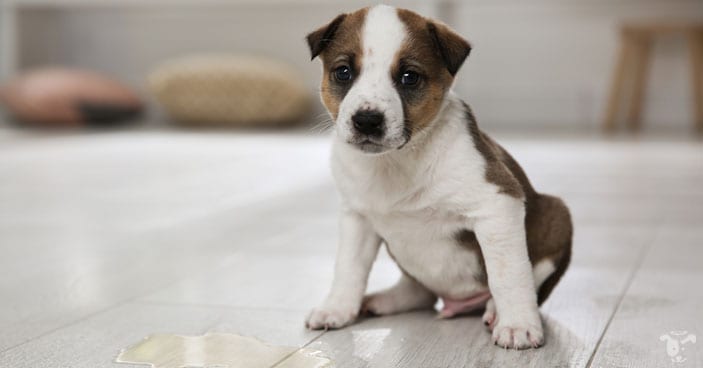
Although we take cues from our puppies when we teach them how to potty, there are potty training principles that – when followed correctly – can help your puppy develop good potty habits quickly and effectively.
After teaching puppy training programs for years, I can confirm that there are factors that make a difference to the whole puppy training experience.
Check this blog I made on how you can train your puppy the fast and effective way!
When these elements are taken by heart during the duration of the training, your chances of getting successful results are increased!
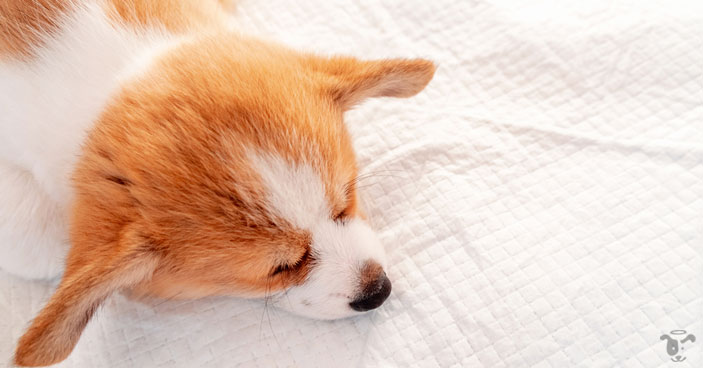
Element #1: Puppy Owners Who Know What Their Responsibilities Are
When you start potty training, some questions like “Do I take cues from my dog or do I take the lead?” and “Do I just follow when my dog shows signs of wanting to go to the potty?” can come up.
As an online dog trainer (and a puppy coach that has guided thousands!) helping puppy owners successfully potty train their pups without feeling done and exhausted, I make sure to give new puppy parents some essential advice:
Puppies follow what’s natural to them.
If they feel like they want to pee, they will pee wherever, whenever.
They don’t know about schedules, the right potty spots, or why they shouldn’t pee everywhere.
They don’t know that… but you do.
Puppy parents, you hold the wheel in potty training. Things can go south when your dog sees and feels that you’re angry just because he wasn’t able to do what he is taught to do.
Here’s a blog I wrote on how building trust and bond helps your dog develop great habits!
When you know this fact, you stop having unrealistic expectations that leave you and your dog tired and frustrated.
Potty training success lies in a pet owner knowing he contributes to the potty training journey – from creating the bond to creating potty training schedules.
Element #2: Puppy Owners Who Understand How Important Trust Is
Think of it this way: when your dog looks at you with its big, curious eyes, take it as a way of them asking you “Why should I trust you?”
Just like little kids, puppies know why they should trust you enough to obey you. Because things are all fresh and new to them, they can feel overwhelmed.
They have to feel that they are safe with you. They need to know that interacting with you will result in something good happening. When they think this way, listening and picking up your commands will be faster and easier.
Element #3: Puppy Owners Who Don’t Resort to Punishments that Result to Fear
There will be accidents. There will be moments when you feel your dog has regressed. You will feel like you’re ready to give up after cleaning pee and poop for the nth time.
No matter how much you love your dog, there will be times when it’s tempting to simply just lash out, shout, hit, and punish them.
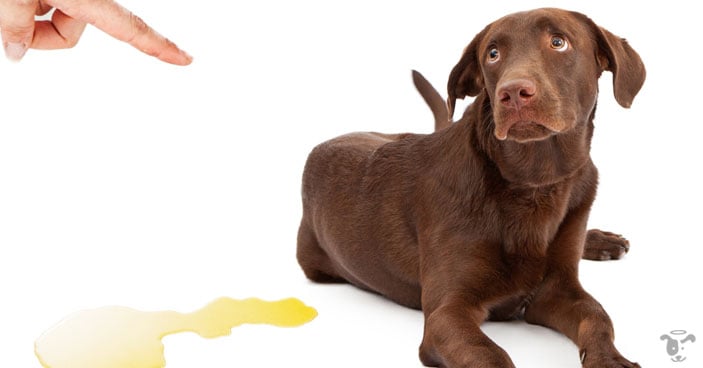
These harsh punishments also include rubbing your dog’s nose on their pee. Dog’s hate their pee as much as you do, so imagine how reprimanding dogs this way can greatly affect your bond.
Choosing not to let your emotions get the best of you has its rewards. When puppies don’t feel threatened, they become more teachable. Puppies also tend to listen to you more.
Check out other dog training myths that might be hurting your puppy’s progress!
Element #4: Puppy Owners Who Understand Not to Make Potty Time Play Time
Approaching potty time should be in the right balance of excitement and serious business.
The key to a thriving potty training journey is a puppy owner who knows how to get their dog eager for potty time without making it feel like it is synonymous with playtime.
Knowing how to create this balance will enable your dog to love potty training without taking your instructions and cues lightly.
Element #5: An Easy-to-Follow Potty Training for Puppies Schedule
Dogs are creatures of habit. They grasp the sense of schedules better than how we think they can.
An ideal potty training schedule for puppies not only speeds up the training process but it also helps your dog develop a crucial potty training skill – holding their bladder for a longer time.
Parents of puppies – after putting to work the lessons introduced in my Puppy Coach program – observe puppies quickly get independent in going out and doing their business when they have picked up the cues.
Nine Common Mistakes Puppy Parents Make When Training a Puppy
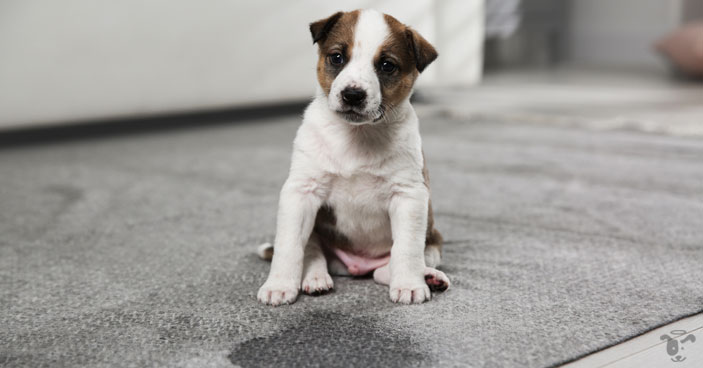
Starting Without a Plan
Having an overall goal to potty train puppies is good. Having a plan is better.
When new puppy owners come asking for advice on why their best potty training techniques don’t seem to work, I ask the golden question – what was your original plan?
I still get puppy parents whose only goal is to train their pet without having a concrete plan on how to do it.
When making a potty training plan, ask the following questions:
- How long should I be potty training puppies?
- Do I prefer to use a crate?
- Will I be house training?
- Am I going to use puppy pads?
- How often should I give treats?
- Am I doing this plan alone, or will I get assistance from a coach?
Not Making a Schedule or Not Consistently Sticking to One
Dogs thrive in schedules – they don’t like it when they are left to guess what happens next.
An ideal puppy schedule provides a sense of structure for your dogs, allowing them to develop a memory of what they need to do at a particular time.
I know you’re excited and eager to start training your puppy as early as you can.
Before you jumpstart your training, create a schedule that considers the following:
- Potty training moment right after waking up
- The need for dogs to pee right after a meal
- Bringing them outside minutes after drinking water.
- Post-nap potty
- Playtime
Here’s the most crucial part: consistency. You need to stick to the game until you win the game. Staying consistent is key to helping dogs get into the habit of peeing outdoors and not on random spots in your home.
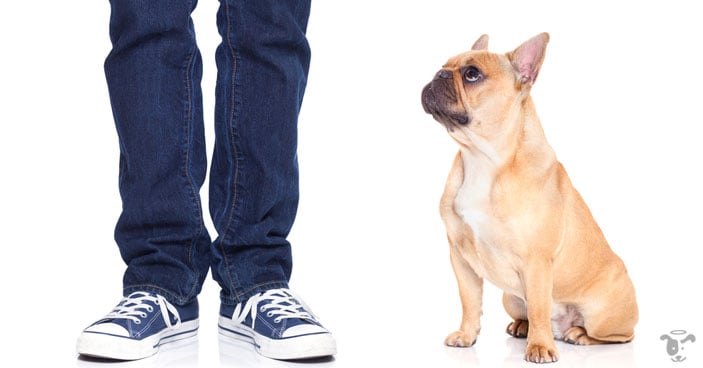
Not Bonding Enough with Your Puppy
Starting potty training the early way is recommended, but not until you have formed that bond of trust with your puppy.
Your little puppy craves both affection and attention and often calls for them before they can start being 100% attentive to you.
Affection and attention can be confused as the same, but in a dog’s world, they can be different.
Cuddling, snuggling, stroking, and petting your little dog are ways you can give affection.
Attention is when your full focus is on them. You can achieve this through training, walking, feeding, or talking to your puppy attentively.
Once a dog sees you as a loving parent, they will be more receptive to what you say.
Assuming Puppies Know Right and Wrong Instantly
The root of some of the biggest frustrations in puppy potty training is expecting puppies to know what’s correct and not right before the training officially starts.
Puppy training is just like raising kids – you will have to give them specific instructions on things they should or should not do. This includes when to potty, where to pee, and why they should go outside instead of peeing anywhere.
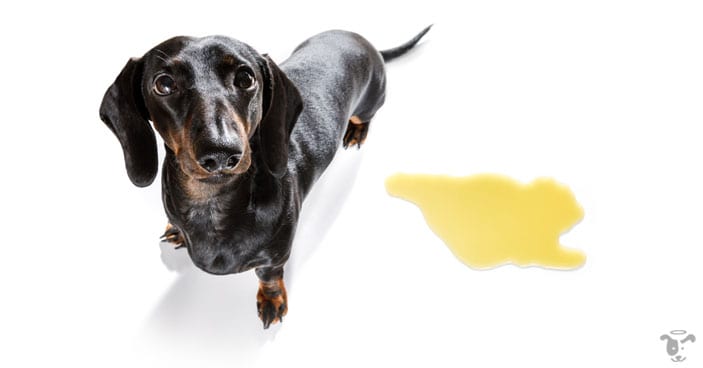
Once you know that you have control on the direction of your potty training journey, you can guide your puppy into potty training success.
Unclear Commands Instead of “Go Potty!”
Puppies are cute, so it’s understandable when your “baby voice” activates once you talk to them.
I have heard puppy parents tell me that they use different commands instead of “Go Potty!” because they’re worried they might scare their pet.
You can still be the most gentle parent without compromising the command to “Go Potty!” and confusing your furball.
Be specific and firm – your dog will rely on this command during the early days of potty training.
Avoid using different commands so they will immediately get the idea on what they need to do next when they hear “Go potty!”
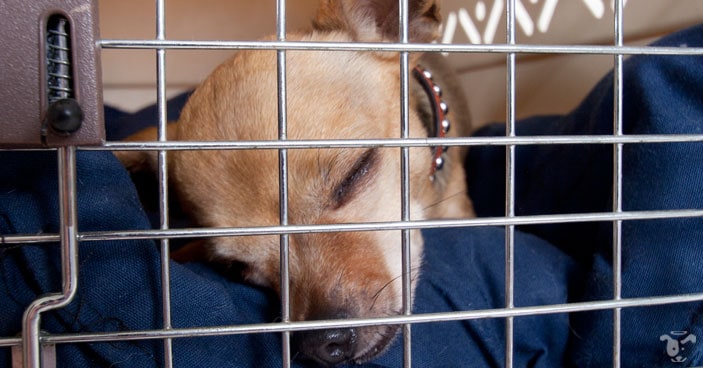
Skipping Crate Training
Dog trainers and pet experts agree that crate training is one of the most effective tools in potty training a puppy.
At first glance, crates look like punishment: they’re small, gated, and feel restricting!
Pet owners skip crate training because it’s too much for their little dog.
However, the crate can train your puppy the essential skill in potty training: controlling their bladder until they are outside.
Puppies hate the smell of pee and will do all they can to keep it away from their sleeping quarters (aka their crate). This means puppies will start holding their pee until you take them outside.
Apart from harnessing the pee-holding ability of your dog, crate training contributes to helping the dog follow its schedule thoroughly.
Here’s a blog I wrote on how to have a successful crate training experience.
Relying Heavily on Puppy Pads
I consider puppy pads a temporary solution for puppy parents who might need a breather from potty training.
Puppy pads are not for long-term use as they can easily send mixed signals that confuse your dog on the right potty training habits.
Using potty pads for a long time can cause the following problems:
- Dogs refuse to pee outdoors because they’re programmed to pee on pads.
- Pee seeping through pads can leave stains that – when not appropriately cleaned – can signal your dog that it’s okay to pee on the same spot again.
- It can stall your puppy’s progress in holding their pee.
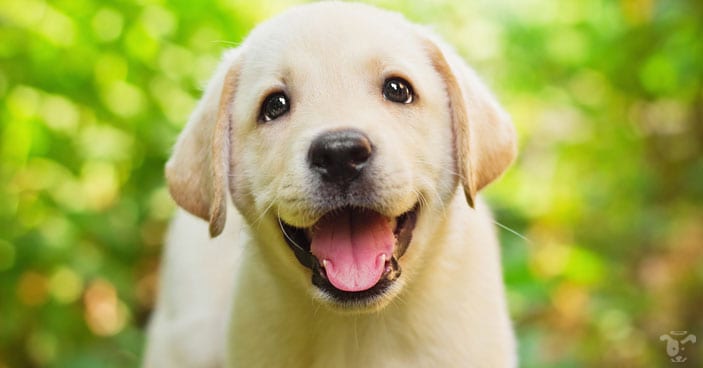
There’s always this feeling of hesitation among new puppy owners when it comes to asking for help.
And there’s nothing wrong with wanting to do things on your own – in fact, I wrote a blog about raising your dog all by yourself!
Because we feel this deep bond and love for our puppies, it’s easy to feel , “This is my puppy. I should know everything I need to train them, right?”
Unfortunately, that’s not always the case, and there’s a little caveat for dog owners who want to do it on their own without prior dog training experience!
The good news is that there are dog trainers who understand your potty training struggles through and through.
Click here if you want to learn more about the benefits of hiring a puppy coach!
You don’t have to do everything independently and stay on the same cycle that leaves you and your little puppy confused, exhausted, and frustrated.
Doggy Dan’s Potty Training Made Easy Video Series
When puppy owners come to me, they usually express their struggles with potty training. In fact, it’s one of the biggest reasons why puppy owners simply want to give up.
I believe that puppy owners who fall in love with their little dogs should know the simple but powerful potty training tips that could change the course of their training experience.
I hope this blog gives you an idea of how else you can make the whole potty training journey better for you and your dog.
Good luck!
~ Doggy Dan


